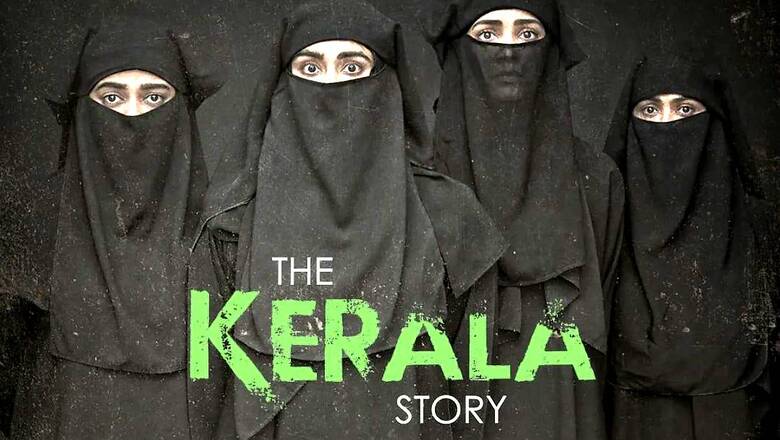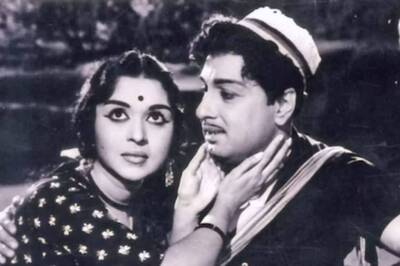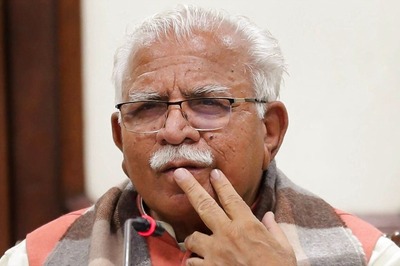
views
Sudipto Sen’s social drama The Kerala Story is not for the timorous viewer. The director does not sugarcoat disturbing sequences, and watching them can be rather unsettling. The thematic gaze is on Hindu and Christian women’s conversion to Islam and radicalisation. How Sen and co. have expanded on the idea has triggered protests against their so-called alarmist approach, which allegedly aims at inciting hatred against the Muslim community.
First things first. The Kerala Story does not qualify as a good work of cinematic art. Apart from an earnest Adah Sharma, who makes some impact in the central role, other actors are ordinary at their best. The dialogues are often below average, while the background music is equally disappointing. But it is, one must add, a relevant film dealing with a sensitive subject that should be accessible to every mature viewer who wants to watch it. Rejection or appreciation shall follow. It inevitably does.
SMALL AND SUCCESSFUL
TKS has generated controversy, which is not surprising in a society where many individuals live in denial. Equally relevant is the fact that the masses have been gravitating to the cinemas to watch the small-budget film. It earned an estimated Rs 8 crore on the first Friday, did twice as much business on Sunday, and collected an estimated Rs 10 crore on the first Monday in the Indian market. Considering how well small-budget blockbusters such as Rishabh Shetty’s Kannada action mythological Kantara and Vivek Ranjan Agnihotri’s drama The Kashmir Files have fared in recent times, any attempt to predict the final box-office numbers of TKS might result in an error. That said, the film is a hit already.
The starting point of the TKS controversy was the teaser released in November last year, which claimed that over 32,000 women from Kerala were converted to Islam and recruited by the terror group, ISIS. The focus shifted to the numbers the makers claimed, and attempts to deflect attention from the fact that the central issue is not just one more harmless modern-day reality were made. Should a film ‘not’ shed light on the subject? It can and should, which has happened. It has been passed by the Central Board of Film Certification (CBFC), after which the question of banning the film or withdrawing it from the theatres must not arise.
Kerala Chief Minister Pinarayi Vijayan has hit out at TKS, and reportedly described it as a ‘bogus story’ and a ‘product of the Sangh Parivar’s lie factory.’ West Bengal has banned the film, with Chief Minister Mamata Banerjee explaining, “…This is to avoid any incident of hatred and violence and to maintain peace in the state.” The film has also been withdrawn from theatres in Tamil Nadu after the government placed the State on high alert ahead of the film’s theatrical release. The main allegation everywhere is that the film intends to spread hatred towards the entire Muslim community. The fact that it is talking about the plight of girls who become victims of manipulation with a hidden agenda is being ignored.
India, of course, has a long history of banned films, a notable one being Gulzar’s 1975 political drama Aandhi. Allegedly based on the personal life of the former prime minister Indira Gandhi, the film got a limited release, was banned during the national emergency and released only after Janata Party came into power in 1977. Today, Aandhi is seen as a classic and the performances of Suchitra Sen and Sanjeev Kumar, its gifted lead actors, rank among the best in their respective careers. More importantly, the film has received much more attention than it would have had it not been banned.
PROTEST MULTIPLIES POPULARITY
In recent times, voices of protest have been raised against films because of reasons as varied as the colour of the female lead’s bikini in a popular song in Siddharth Anand’s action thriller Pathaan and Agnihotri’s 2022 social drama The Kashmir Files because of allegations of distortion of established history and propagating Islamophobia. Despite calls for a ban, Pathaan, a big-budget film, emerged as an all-time blockbuster. The Kashmir Files, a small film, surprised many with its success. The message for those who seek bans on films passed by the censor board, in other words, is loud and clear. If we attempt to ban a film and fail, its failure is unlikely — even if a state or two bans it despite the censor board’s certification.
TKS is enjoying a successful run at the theatres. However, the Supreme Court will reportedly hear on 15 May an appeal against the Kerala High Court’s interim order that refused to stay the film’s screening after concluding that the film’s trailer did not offend any particular community as a whole. Vipul Amrutlal Shah, the film’s producer, assured the high court that the controversial teaser mentioning that 32,000 women had been recruited to ISIS will be removed from their social media handles.
The high court’s conclusion notwithstanding, some critics of TKS’ content want to ensure it does not reach more viewers. That is unfortunate because there is no focus on the real need of the hour: a discussion on why TKS had to be made in the first place.
The author, a journalist for three decades, writes on literature and pop culture. Among his books are ‘MSD: The Man, The Leader’, the bestselling biography of former Indian captain MS Dhoni and the ‘Hall of Fame’ series of film star biographies. Views expressed are personal.
Read all the Latest Opinions here




















Comments
0 comment